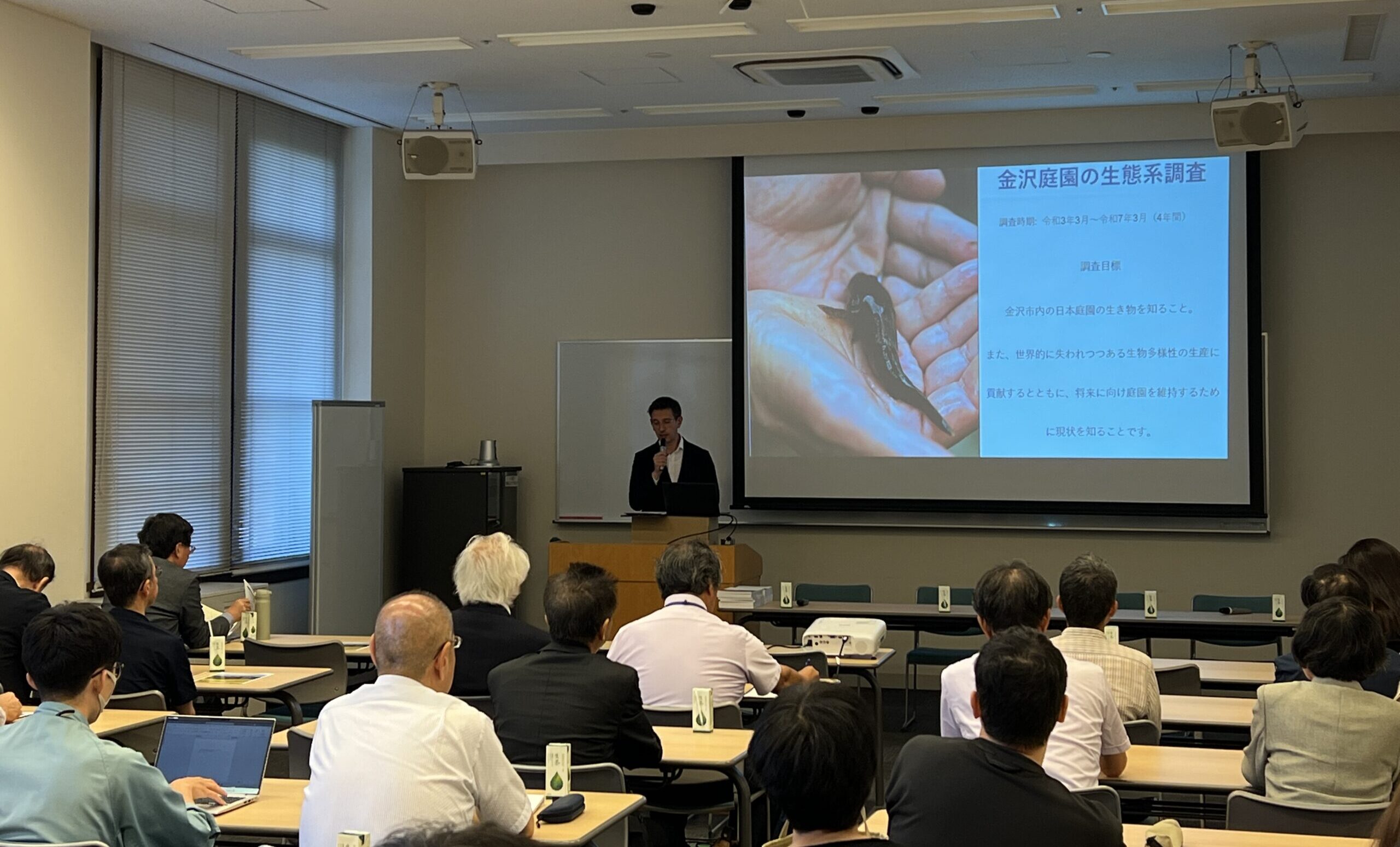On June 19, 2025, the United Nations University Institute for the Advanced Study of Sustainability (UNU-IAS OUIK) held a reporting session on the results of the “Wildlife Survey of Japanese Gardens in Kanazawa City” at the Shiinoki Cultural Complex in Kanazawa. This survey was conducted by Dr. Juan Pastor-Ivars (Researcher, UNU-IAS OUIK) over three years, targeting 30 gardens across the city, with the aim of clarifying the local biodiversity and explore the ecological roles these gardens play.
At the venue, a diverse group of participants, including officials from Ishikawa Prefecture and Kanazawa City, garden owners, research institutions, and nature conservation organizations, gathered for a closed-door report session and discussion.
Dr. Juan Pastor-Ivars began by outlining the survey’s background, methods, and key findings. Through environmental DNA analysis and on-site observations, several rare species in urban areas—such as the Greater horseshoe bat (Rhinolophus ferrumequinum), Japanese pond turtle (Mauremys japonica), Japanese fire-bellied salamander (Cynops pyrrhogaster), and Ayu sweetfish (Plecoglossus altivelis) —were identified in multiple gardens. These results suggest that gardens function as important habitats and breeding grounds within the city.
The presentation also highlighted that gardens with a greater variety of plant species tend to host more animal species, that garden management practices influence biodiversity, and that gardens connected to canals enhance aquatic life distribution. These results point to the potential of gardens functioning as “ecological corridors” that link natural spaces across the urban landscape.
In the second half of the meeting, coordinated by Tsunao Watanabe (Visiting Researcher, UNU-IAS OUIK), addressed future directions from multiple perspectives. Topics included promoting gardens as OECMs (Other Effective Area-Based Conservation Measures), establishing citizen-participatory monitoring systems, and creating educational programs for children and youth.
This survey and reporting session served to reassess the scientific and cultural significance of gardens remaining in urban areas. The findings are expected to provide a foundation for considering the registration of “Nationally Certified Sustainably Managed Natural Sites” in Kanazawa City and for developing urban plans that incorporate biodiversity considerations. Going forward, collaboration among government agencies, garden owners, citizens, and researchers will continue to promote the realization of a city where urban life and nature coexist harmoniously.





